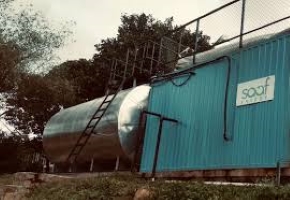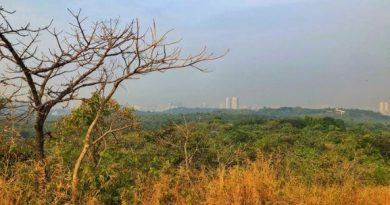Canada Earmarks $300 million For Clean Energy For Rural Communities

Canada has turned around to its own people to lead the indigenous projects, grow local economies, create good jobs, fight climate change and keep the land and air clean by displacing fossil fuels. Canada ranks among the top consumers of energy, in per capita terms.
Minister of Natural Resources, Jonathan Wilkinson, Minister of Northern Affairs, Daniel Vandal and Minister of Indigenous Services, Patty Hajdu, announced on April 26 that $300 million would be invested in capacity-building initiatives which the communities can now apply for on the Clean Energy in Indigenous, Rural and Remote Communities website, and applications will be reviewed on an on-going basis. The proposed investment reflects a commitment to local solutions and community-driven projects for a clean energy future.
Wilkinson said “Canada is working toward reducing the use of diesel and other fossil fuels for heat and power in Indigenous, rural and remote communities by improving energy efficiency and increasing the use of local renewable energy sources such as wind, solar, geothermal, hydro and biomass. We will continue to work in partnership with these communities to empower and support local low-emissions solutions and help build the clean energy future we need.”
The Strengthened Climate Plan reads that investments under this programme will support the communities launching clean heat and power projects such as wind, solar, geothermal, hydro, biomass and support increased adoption of energy efficiency measures. The policy aims at not only reduction of the use of fossil fuels to keep the air and land clean but also at support to communities in creating jobs.
Supporting the Indigenous, rural and remote communities in the transition to clean energy, the Government of Canada is also creating a single-window approach to access the resources and fund. Expected to launch this fall, this new service model will be flexible in funding, supporting the communities. The government has mooted an Indigenous Advisory Council to hand hold and advise about a project selection and development.
Quick facts
- Canada’s Strengthened Climate Plan is investing $300 million over five years to ensure that rural, remote and Indigenous communities that currently use diesel have the opportunity to be powered by clean, reliable energy by 2030.
- In addition, Budget 2021 provided $40.4 million over three years, starting in 2021–22, to support the feasibility and planning of hydroelectricity and grid interconnection projects in the North to help communities transition to clean energy and reduce their reliance on diesel.
- Budget 2021 also provided $36 million over three years, starting in 2021–22, through the Strategic Partnerships Initiative (SPI), which is administered by Indigenous Services Canada (ISC), to build capacity for local, economically sustainable clean energy projects in First Nations, Inuit and Métis communities and support economic development opportunities.
- To date, 51 percent of SPI’s Clean Energy funding is committed to advance initiatives across Canada. These include key projects in British Columbia and Quebec as well as a partnership with the national Indigenous Clean Energy (ICE) social enterprise.
- To date, the Northern Responsible Energy Approach for Community Heat and Electricity program (Northern REACHE) has invested more than $29 million in 140 projects and capacity-building initiatives across the North.
- Through the Clean Energy for Rural and Remote Communities (CERRC) program and the Indigenous Off-Diesel Initiative, NRCan is now supporting 115 capacity-building and renewable energy projects in over 130 communities.
- Some projects supported through these programs include:
- The Atlin Hydro expansion project in Yukon has received $39.6 million in funding through Northern REACHE, CERRC, CanNor and the Low Carbon Economy Fund.
- Tarquti Energy, an Inuit-led energy company, received $979,000 to conduct wind resource assessments in Nunavik.
- Baker Lake in Nunavut received $172,000 in funding to install a solar energy system on the local recreational centre.
- The Nunatsiavut Government received $1.4 million to advance wind power projects in Nain, Labrador.
- The Indigenous Off-Diesel Initiative supports 14 energy champions and their remote Indigenous communities/regions in developing and implementing ambitious plans to reduce diesel use for heat and power. This initiative is delivered in collaboration with the Indigenous Clean Energy Social Enterprise and the Pembina Institute.
- The Canada Infrastructure Bank’s financing is an additional tool for Indigenous communities to consider in combination with federal funding, and the federal government may refer projects for coordinated support with the Canada Infrastructure Bank to better meet project and communities’ needs.




